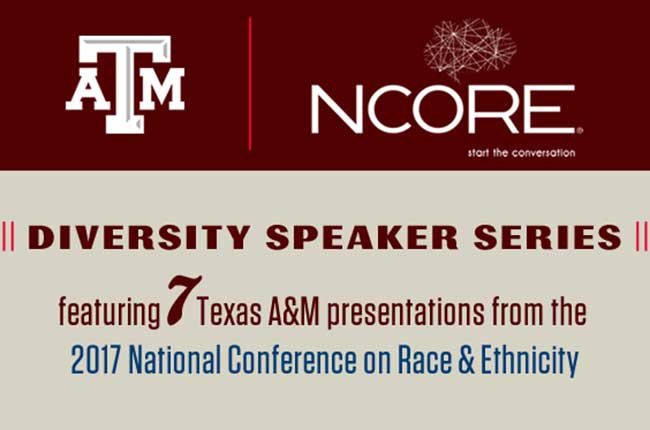For four centuries, white oppression has been a foundational, institutionalized and systemic reality in America, said Texas A&M Distinguished Professor of Sociology Joe Feagin in his presentation as part of the Diversity Speaker Series sponsored by the Texas A&M Office of Diversity earlier this week.
Concepts like prejudice, stereotyping, intolerance, bigotry, animus and individual discrimination are used often to examine issues of racism in the United States, Feagin said, and while they serve a purpose, the systemic racism and its white frame go mostly unidentified and unnoticed.
The “white frame” is a white-generated worldview that positions whites as superior and virtuous, and racial “others” as inferior and unvirtuous, and people of all backgrounds are indoctrinated into this dominant racial frame to some extent, Feagin said.
“Systemic racism includes the well-institutionalized, society-wide array of white anti-others practices, unjustly gained white societal power embedded in a racial hierarchy, huge resource inequalities along racial lines, and a dominant white racial frame rationalizing unjustly gained white privilege and power,” Feagin said.
To achieve societal change, racism education beyond simple conscious-raising is needed, Feagin said. More people need to learn about the dominant white racial frame and ways to de-frame their views, re-frame them and dissent in everyday settings. The Southern Poverty Law Center reported that teachings about the civil rights movement in classrooms typically center around two key figures, Martin Luther King and Rosa Parks, only a handful of states require educators to devote significant attention to the movement, and more than 30 states require minimal or no instruction at all.
Beyond schoolrooms, local and national leaders need to establish organizations that aggressively identify individual and systemic racism, and teach ways to challenge those practices and attitudes in everyday life, Feagin said. Based in Minnesota, the Antiracism Study Dialogue Circles Metamorphosis is such a group that has experienced success in developing anti-racism curriculum models and expanding group facilitator training. The group is growing organizational outreach to take its programs beyond Minnesota.
Feagin concluded his presentation with an excerpt from an address made by anti-slavery leader Frederick Douglass in 1857: “If there is no struggle, there is no progress. Those who profess to favor freedom, and yet depreciate agitation, are men who want crops without plowing up the ground. They want rain without thunder and lightning … power concedes nothing without a demand. It never did and it never will.”
The seven presentations in the series sponsored by the Texas A&M Office of Diversity were delivered originally at the 2017 National Conference on Race and Ethnicity earlier this year.
###
Media contact: Elena Watts, Division of Marketing & Communications, at (979) 458-8412 or elenaw@tamu.edu.




